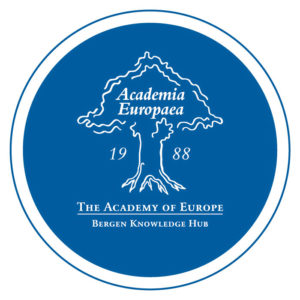An Academia Europaea statement of principles for the Future of Research and innovation policy of the European Union – Forward from 2020.
Academia Europaea wishes to express our strong support for the further development of the European research area and in particular the European Research Council. We express our concern about the July 2020 Council conclusions[1] and the budgetary decision on Research and innovation.

We are of the clear opinion, that ‘armaggedon’ is not on the horizon. Nevertheless, we share the worries expressed by our sister Academy organisations and other related organisations. Member States and the European Parliament should not see research funding as simple tap, to turn on and off when things get difficult. Political short-termism puts at risk the capacity to deliver the essential longer-term research and innovation gain. We are of the strong opinion that the various extant threats we collectively face and the as yet unrealised and to an extent unknown consequential impacts, now more than ever require a steady hand and an increased and substantial active dialogue between policy makers, political agencies and the research and innovation communities. Such an approach will ensure that Europe can maintains its capacity to deliver research and innovation in an effective and prioritised way at whatever level of budget is agreed.
Over past decades, the EU has with the support of the member states and its citizens, made enormous and positive advances in research training and Innovation policy and through consistent increased financing, delivered significant improvements in collaborative research capacity and research excellence across all phases of the research spectrum. The establishing of the European Research Area and its proposed renewal[2] and within it, the creation of Erasmus, Marie Curie, The European Research Council (ERC) and Framework/Horizon programmes, have all severally and collectively made real and significant contributions to our European research, training and innovation capacity. There has been a positive but perhaps unimagined scale of stimulation of collaborative research efforts and cross -cultural community development. These impacts can be seen through the many direct and indirect benefits to European Society across very diverse areas that have flowed out of these very large investments of public money. However, we must not lose sight of the ongoing reality: that even now the majority of investments into research and innovation are those made at national level and which respond to national priorities and communities. It is vital that all member states and those states associated fully to EU programmes continue to see EU level programmatic support as additional and complimentary and not as replacements for their own sound and viable national funding programmes.
The Academia Europaea is pleased to note in particular, that the development of the ERC has perhaps been the singular policy innovation with the highest recognition and impact on the landscape of European research. This model institution must be nurtured and further developed for future generations.
The Academia Europaea now takes this opportunity to re-state in a positive way, some of the underlying and critical policy objectives that the next budgetary frame should be focussed to deliver. Whatever the final political outcomes are in terms of budgetary decisions, these priorities must stay as guiding tenets to inform the future, provide the community with a balanced and equitable distribution of resources and condition the content and priorities for research and innovation that support European societal needs. We should all agree that the overall objective of publicly funded, collective European Research and Innovation actions must be to contribute towards delivery of resilience, security and sustainable economic prosperity for all of European society and in addition, must contribute towards the most urgent priorities that underpin a sustainable future for our common home.
We see the following as guiding tenets for EU level research and innovation policy in the next financial framework:
- Ensure the most efficient and effective application of public resources in support of the whole chain of research and innovation for the longer-term.
- Ensure that support for future generations is deployed through the most effective training; education and research support schemes and in particular addresses regional inequalities of opportunity.
- Ensure a continuing effort to put European fundamental research capacity at the global forefront of excellence. Fully support the ERC to target and develop the best in terms of research and innovation capacity and support those in less research-intensive regions through relevant channels to achieve the best.
- Focus the priorities for EU research and innovation policy on effective and efficient knowledge and innovation activity that responds to future societal needs and on the delivery of an anticipative capacity that can mitigate future risks in a timely, equitable and sustainable way.
The Academia Europaea feels confident that the institutions of the European Union will collectively recognise that whatever the detailed budgetary debates may be, a collective and substantial EU -level investment in common research, education and training public investment is beneficial for the whole of Europe. We therefore strongly urge Member States, to take real steps to achieve effective co-ordination through co-operation of their national investments in R & I with the EU level investment. Effective implementation of the new European Research Area policy and programme is a priority. The AE wishes to emphasise, that the ERC and its support instruments having achieved an unparalleled global recognition as a guarantee for excellence in research innovation must see the resources allocated to the instruments of the ERC at the Horizon 2020 levels – as a minimum.
Published under the authority of the Board of trustees of the Academia Europaea
21 October 2020
London
[1] https://www.consilium.europa.eu/en/press/press-releases/2020/07/21/european-council-conclusions-17-21-july-2020/
[2] https://ec.europa.eu/info/research-and-innovation/strategy/era_en#revitalising-era-timeline

